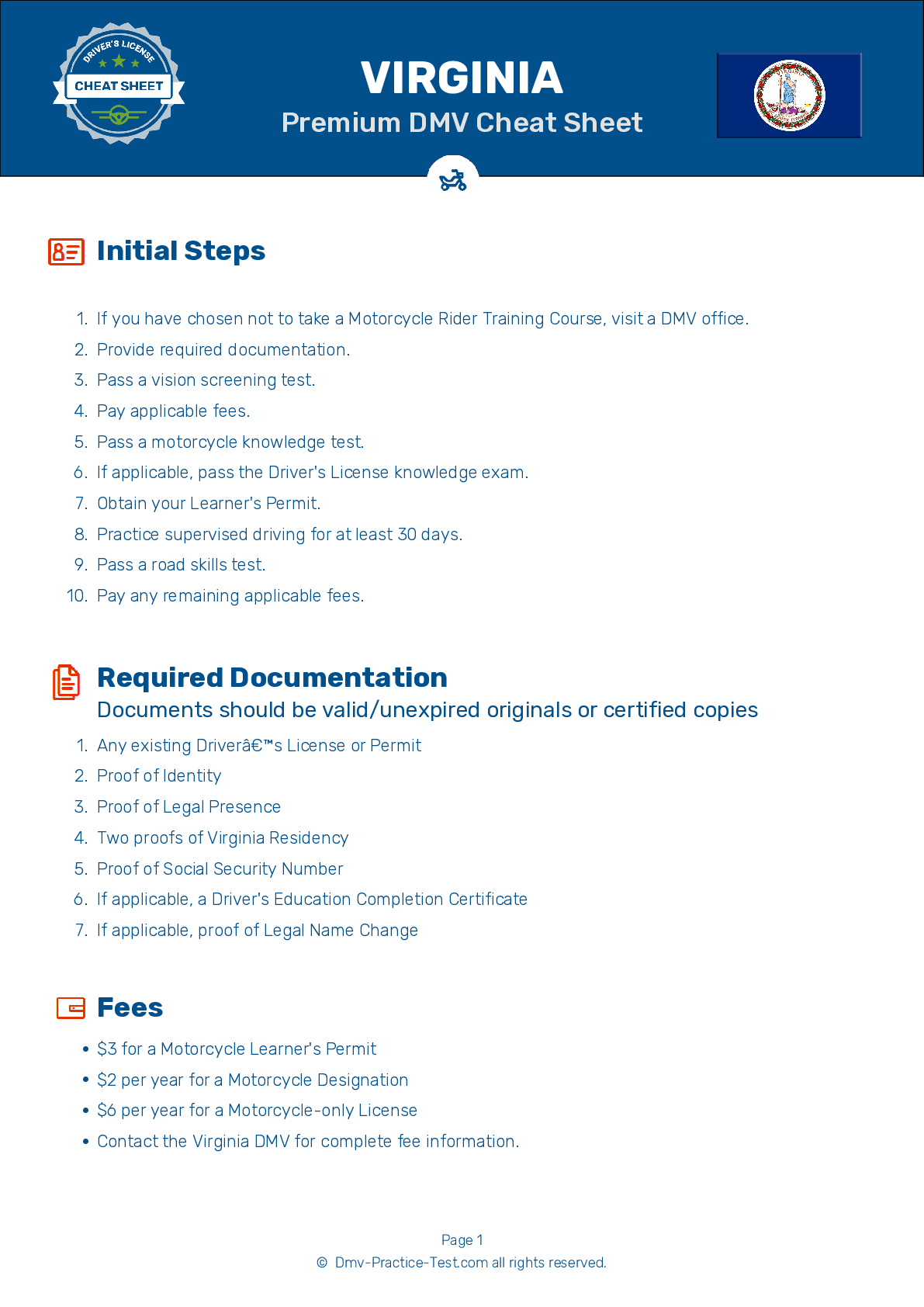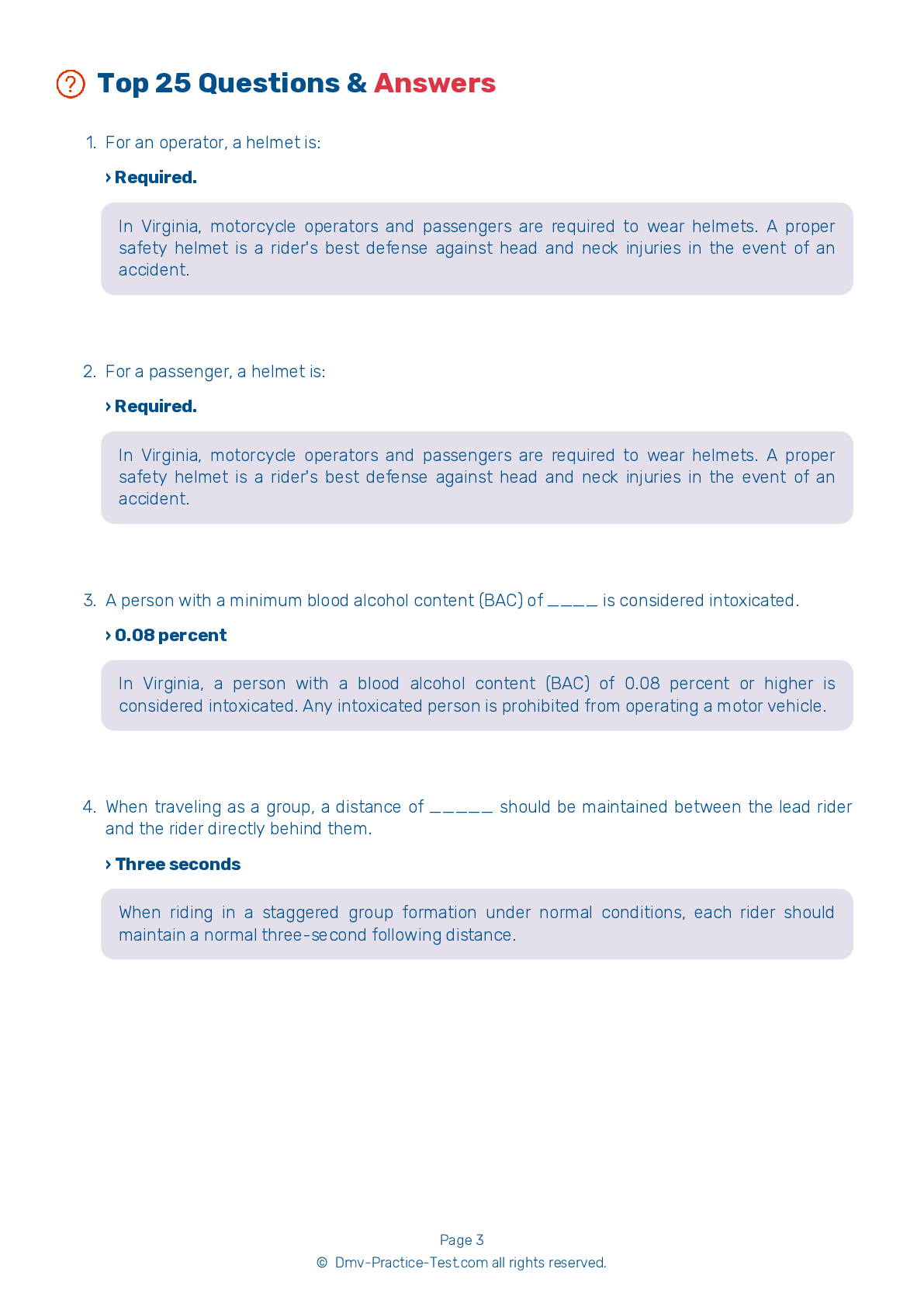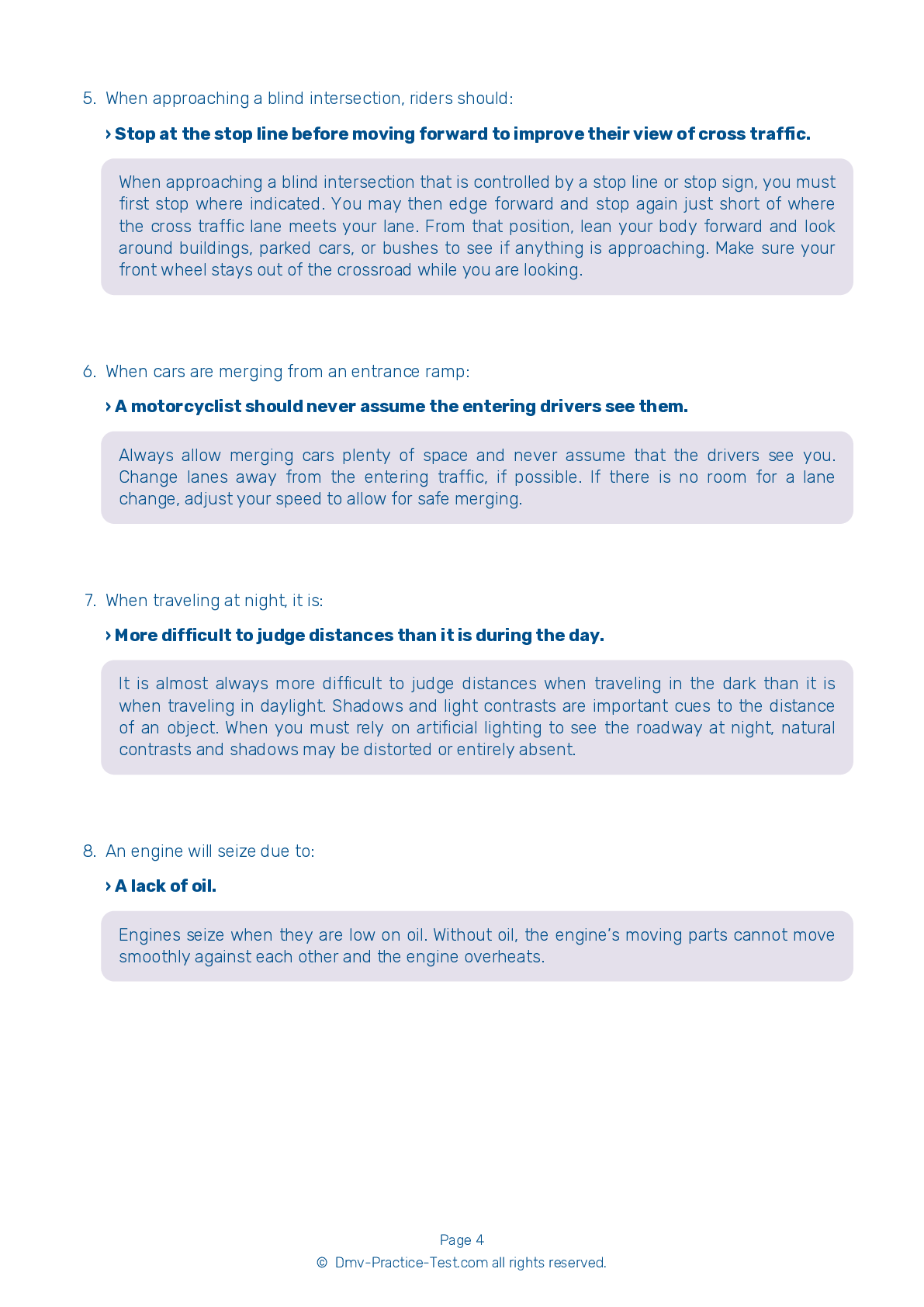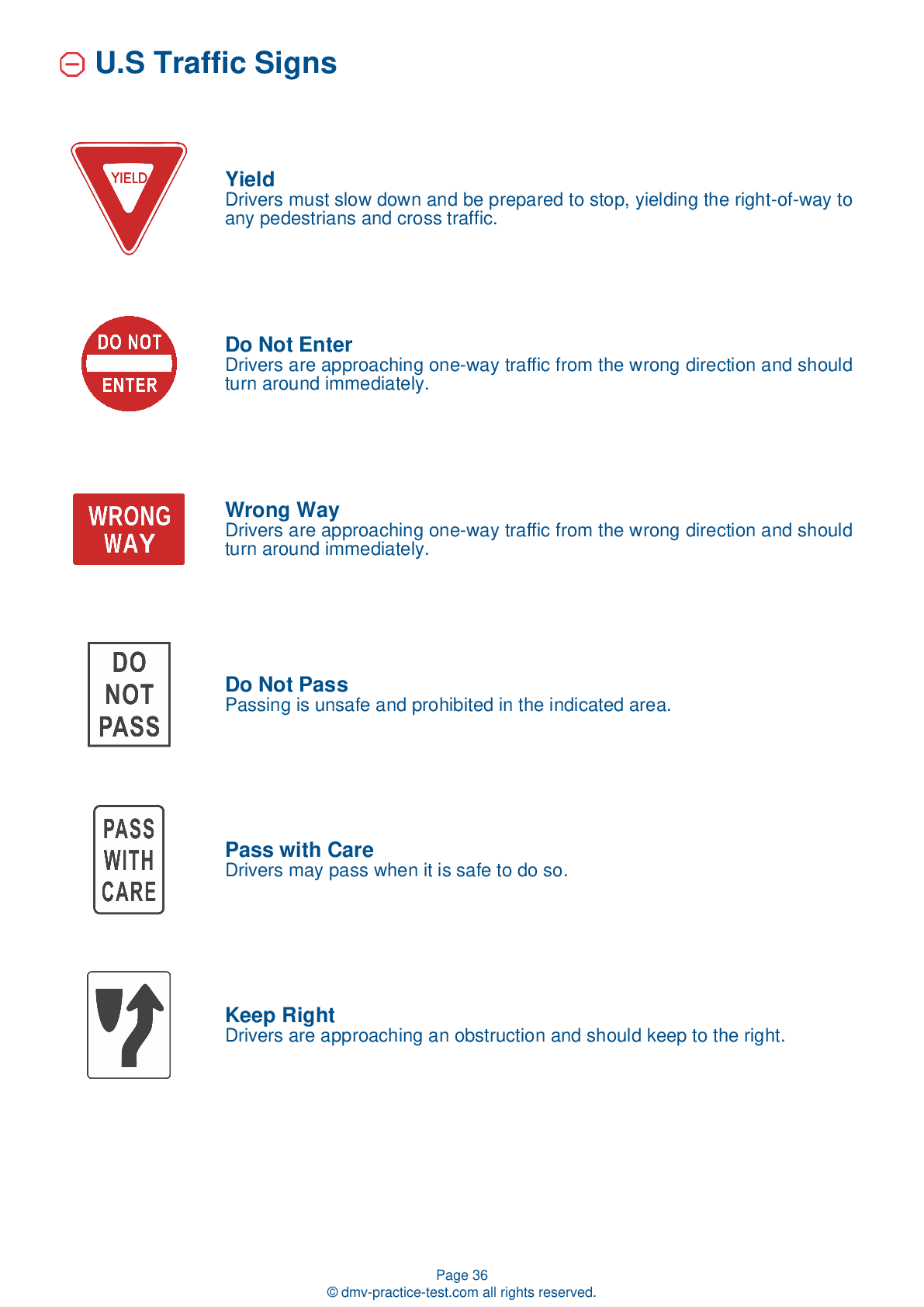Motorcycle Test | License VA 2026 | FREE Online Practice! #11 Page 5 of 5
Take this FREE motorcycle test (license in VA 2026) to check your knowledge of the road rules. To improve your results, download a motorcycle handbook online, study theory, and practice for free on our website. Still worried about how to get a motorcycle license in Virginia in 2026? Check our website for more sample tests, train as much as possible, and boost your grades!
21 . When making a non-emergency stop on a motorcycle:
When making a normal, non-emergency stop, use the front and rear brakes simultaneously and downshift.
22 . When being passed by another vehicle, you should travel in:
When being passed, the center portion of the lane is generally the safest lane position for a motorcyclist. Riding on the side nearest the passing vehicle increases the risk of colliding with it. Riding on the side farthest from the passing vehicle can also be dangerous because it may prompt the driver to return to your lane before it is safe to do so.
23 . This road sign means:
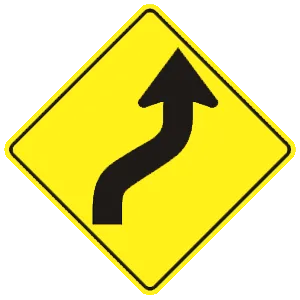
Warning signs are usually yellow with black markings. This sign warns drivers that the upcoming road will curve right, followed by a curve to the left. Drivers should adjust their speed to safely continue on the road.
24 . As your motorcycle accelerates, you will need to:
As your motorcycle accelerates, you will need to shift into a higher gear.
25 . Riding gloves should be made of:
To provide maximum grip and protection, riding gloves should be made of leather or a similar durable material.
See the exact questions that will be on the 2026 Virginia DMV exam.
99.2% of people who use the cheat sheet pass the FIRST TIME
Jeneen was tired of paying $5/gallon. She got herself a scooter that required the motorcycle license. She studyed the motorcycle test cheat sheet and passed her test the next day!
Christopher tells us how he knew nothing prior to obtaining the motorcycle study guide, and he only got one question wrong because he clicked on the wrong answer by mistake.
